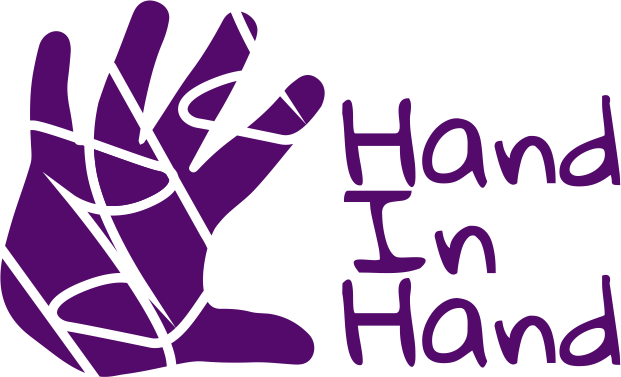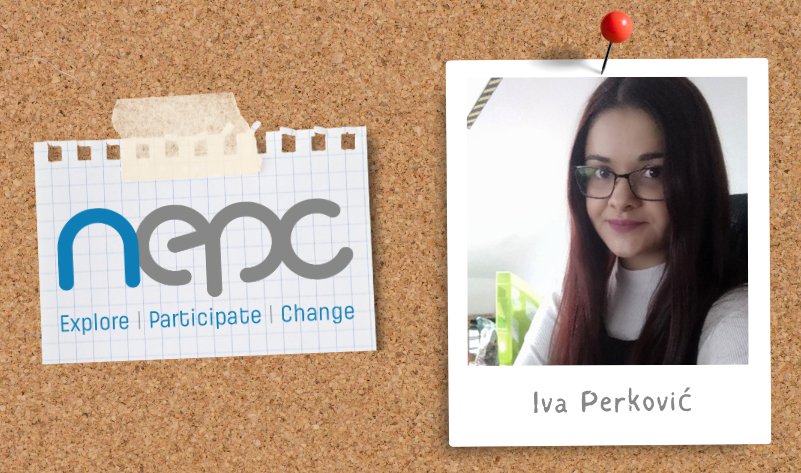




Ana Kozina, project coordinator shared her insights on the importance of social and emotional competencies and diversity awareness (SEDA) in schools.
HAND IN HAND: Empowering teachers across Europe to deal with social, emotional and diversity related career challenges (HAND:ET) builds on the lessons learnt and insights from HAND IN HAND: Social and Emotional Skills for Tolerant and Non-discriminative Societies – A Whole School Approach (HAND) which was recognized as one of the ten most relevant EU projects addressing teachers’ and school leaders’ more attractive career paths.
In both, Network of Education Policy Centers (NEPC) has/had the role of coordinator of communication and dissemination, encompassing a set of promotional efforts, events and products to optimize the use of the results and outputs of the project itself as well as the sharing of results to all relevant stakeholders.
Before the beginning of the implementation of the first project activities “in the field” we decided to revisit the initial idea of the first HAND project and explore the knowledge acquired during the first project that contributed to the expanding the idea and developing the HAND:ET project.
Ana Kozina, Scientific Associate at Educational Research Institute, project coordinator of both projects will share her insights on this evolution of the project idea as well as on the importance of the topic of empowering teachers and social and emotionalcompetencies and diversity awareness (SEDA) in schools.
HAND was envisioned in a time of a specific circumstances, can you elaborate more how was the idea conceived and what needs you intended to address?
– Yes, HAND IN HAND was our reply to a need recognised in Europe to build and support inclusive learning environments that were, at the time, challenged with more and more migrants coming to Europe. While looking for an answer in evidence-based research: social and emotional learning in combination with inter(trans)cultural competencies came like a knight in shiny armour. It then seemed (and still does) like a much-needed solution that would help promote inclusive schools and societies, where every student would feel accepted and be able to reach his or her potential.
So, the European Commission call gave me, and the researchers, as well as practitioners and policy initiators, who shared the same vision, an opportunity to explore how these competencies can be supported in different countries. And so, the HAND in HAND project started. The project built on the importance of relationships and especially empathic presence in different types of relationships (as building stones for an inclusive classroom) with the focus on a whole-school approach. We have developed an open-access systemic policy tool: EU-based, universal SEI learning programmes and test the effectiveness of these programmes in a field trial experiment in three EU countries: Slovenia, Croatia and Sweden.
Both projects are in a way starting in the challenging times, HAND when project countries were facing migrant crisis and HAND:ET during the COVID-19 pandemic. How would you estimate the effect of these circumstances on the acceptance and acknowledgment of the topic of SEDA in schools?
– From the beginning of the HAND project, we had the universal nature of SEDA competencies in mind. We have envisaged a positive switch on the individual classroom, school and societal level when supporting these competencies. And, in a very harsh way, COVID-19 has challenged the social, emotional competencies and diversity awareness of everyone and highlighted the need for systemic solutions for fostering these competencies at all levels.
For instance, what we have noticed is an increase in the number of visits to our freely available HAND activities at our YouTube channels at the time of the COVID-19 pandemic outbreak. At the time of increased anxiety, we all felt the need for support. And in addition to practical experiences, research has proved that emotional competencies are indeed related to better psychological functioning in times of increased stress, such as the COVID-19 pandemic. And increased stress was something that especially teachers, alongside medical staff, has experienced more intensely. Now is definitely the time, when these competencies are more recognized, both in schools as wider.
HAND project was focused on the whole school approach and HAND:ET is focused on empowering teachers. What needs did you recognize during the implementation that encouraged you to focus on teachers in HAND:ET?
– The question we asked ourselves in the HAND project was not only what needs to be supported in order for the classroom to be more inclusive (SEI competencies) but also how can we do that. This is why we designed a complex experimental design across countries in which we have tested the effects of the HAND program in schools across several conditions: (A) the control condition (without receiving the HAND programmes); (B) completing only the programme for students; (C) completing only the programme for school staff; and (D) completing the programmes as part of a whole-school approach (namely, the programme for school staff and the programme for students).
And the evaluation process revealed the central role of teachers in promoting social and emotional education, i.e., more positive outcomes of students’ SEI competencies were documented when teachers were involved in the programme compared to conditions where only students were involved. The take-home message was that teachers are a starting point. Teachers are in our opinion really central to addressing a key challenge for schools in the 21st century, which is to serve different students with a variety of abilities, motivations and backgrounds to succeed in school and later in life.
Therefore, it is crucial for them to be equipped with these competencies, firstly to help them deal with their day-to-day life situations as well as supporting the students that rely on them. And as said, the COVID-19 pandemic has added new challenges to the EU education systems with teachers at the front line. For instance, there are never-ending extra stressors such as online teaching, quarantines, insecurities related to new skills, the need for greater flexibility. And here HAND:ET can give a hand.
There are also some conceptual changes, HAND was focused on social, emotional and intercultural (SEI) skills while in HAND:ET we are focusing on social and emotional competencies and diversity awareness (SEDA).
– Yes, and no. The fact is that in HAND the focus was also on diversity awareness and the name itself (Intercultural competencies) did not reflect the actual content of the programmes good enough. Therefore, in the HAND:ET we are using diversity awareness that in our opinion better captures the mission of the HAND:ET project which is to support teachers in being aware of the diversities in the classroom, their own responses to these diversities as well as on ways on how to include the diversities in building a positive relationship in classrooms, schools and wider.
Additionally, HAND:ET also evolved on the policy level, aiming to contribute to the formation of a comprehensive EU teacher policy. What inspired you to address this issue on the EU policy level?
– As a solid policy experiment, the project will provide policy-oriented research evidence to better understand the individual, school and system-level factors needed to support the enhancement of teachers’ SEDA competencies. What led us to boost policy level impact Is the fact that despite SEDA competencies are having documented positive impacts on individual (e.g., mental health) and school-level outcomes (i.e., academic achievement, early school (job) leaving, job satisfaction) there are still substantial variations across countries and local jurisdictions in the availability of policies and programmes aimed at boosting these competencies as a consequence of lacking direct systemic support. The opportunity to receive the SEDA competencies support should not be dependent on the context we are in (e. g., the class, school, region or country) but available to all.
Therefore, we believe that we need systemic “top-down” support. And that does not exclude the need for contextualisation. In fact, in HAND:ET we aim to develop European policy guidelines that support the upscaling of SEDA topics and programmes in teacher education at the system level across Europe as well as provide country-specific recommendations, addressing contemporary structural problems of the teaching profession in an evidence-based long-term way.
Finally, what would be main ‘lessons learned’ in the implementation of HAND that you have adopted and implemented in HAND:ET?
– In addition to putting teachers in the focus, we are in the HAND:ET project directly replying to the need expressed across countries, and that is to provide constant support and monitoring throughout the school year at one side and to support transfer to the classroomactivities on the other side. In short, HAND:ET, in addition to HAND, offers whole school year continuous support for SEDA competencies as well as for implementing SEDA elements in the classroom for the whole-school teams. And not to neglect that, we have, on a project level, made two very important extensions, adding two more countries, Austria and Portugal, and increased the number of trainers. The whole-year-whole-team approach has a strong focus on collaborative contextualised development of HAND:ET system (together with teachers) with the aim to assure its sustainability in transferability: HAND:ET is not designed for the teachers but with the teachers.
You can learn more about both projects on the official website: HAND and HAND:ET, and to stay informed about the recent ongoing project activities visit official project Facebook page.


